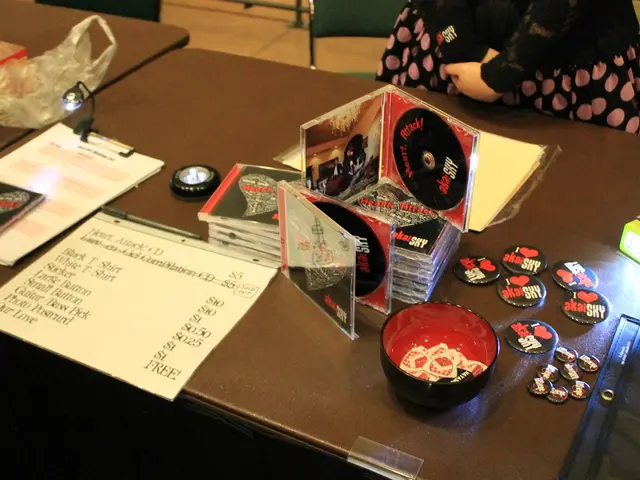"Despite their inability to hit perfect notes consistently, these musicians embrace their humanity rather than striving for AI-perfected tracks. A glimpse into the lives of genuine artists struggling against digital manipulation in the music industry."
In the world of music, the line between reality and artificial intelligence (AI) is becoming increasingly blurred. Recently, several folk and Americana artists have found their profiles on streaming platforms like Spotify being impersonated by AI, with New York-based singer-songwriter Josh Kaufman and Sheffield-based folk singer Emily Portman being among the latest victims.
Josh Kaufman, known for his soulful and heartfelt music, started receiving messages about new music released under his name that represented a significant stylistic shift. The AI-generated song 'Someone Who's Love Me' was described as sounding like a Casio keyboard demo with broken English lyrics, which was far from Kaufman's usual style.
Emily Portman was alerted to the issue when a fan messaged her saying "English folk is in good hands." However, it was not Portman who had released the album named Orca, featuring tracks like 'Sprig Of Thyme' and 'Silent Hearth.' The AI-generated album was trained on Portman's music, but the fraudsters behind these impersonations did not do a very good job, as it was clear that the music was computer-generated.
Portman described the AI-generated music as "vacuous and pristine," a stark contrast to her raw and authentic sound. Kaufman's fans and friends were also not impressed with the AI-generated music.
A BBC article highlights the issue of AI being used to impersonate living artists on streaming platforms for financial gain. The fraudsters behind these impersonations may believe smaller artists won't easily notice or would be grateful for the exposure. However, Spotify took three weeks to rectify Portman's artist page after the AI-generated album Orca was incorrectly added to her profile.
In a statement, Spotify claimed that the albums were incorrectly added to the wrong profile of a different artist by the same name, and were removed once flagged. The company has not disclosed any publicly available, verified information identifying the background actors responsible for these AI-driven identity thefts.
Despite the AI-generated controversy, both Portman and Kaufman are forging ahead with their own music. Portman is currently recording a new album, her first in ten years, while Kaufman has promised that his new album, unlike the AI-generated Orca, will take time, money, and personal creativity.
In an era where AI is becoming more prevalent, it serves as a reminder that there is still no substitute for the creativity, passion, and authenticity of human artists.
Read also:
- Understanding Hemorrhagic Gastroenteritis: Key Facts
- Trump's Policies: Tariffs, AI, Surveillance, and Possible Martial Law
- Expanded Community Health Involvement by CK Birla Hospitals, Jaipur, Maintained Through Consistent Outreach Programs Across Rajasthan
- Abdominal Fat Accumulation: Causes and Strategies for Reduction







